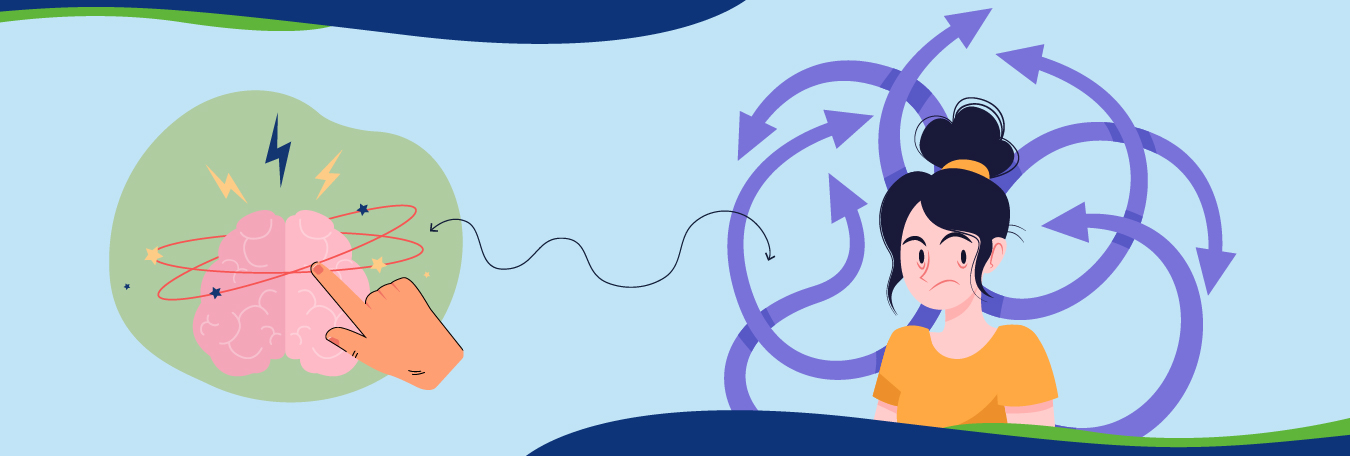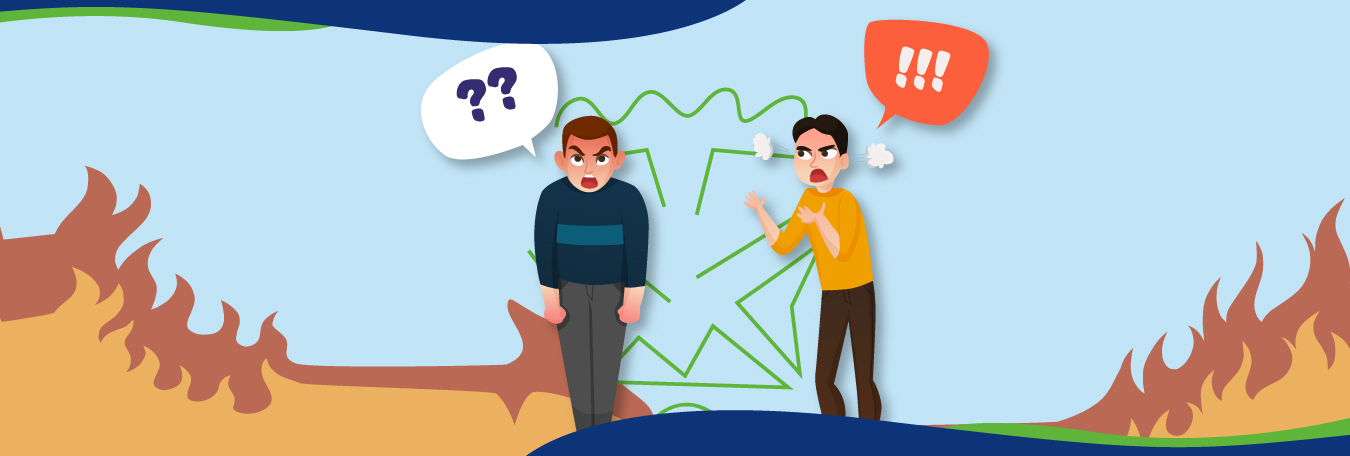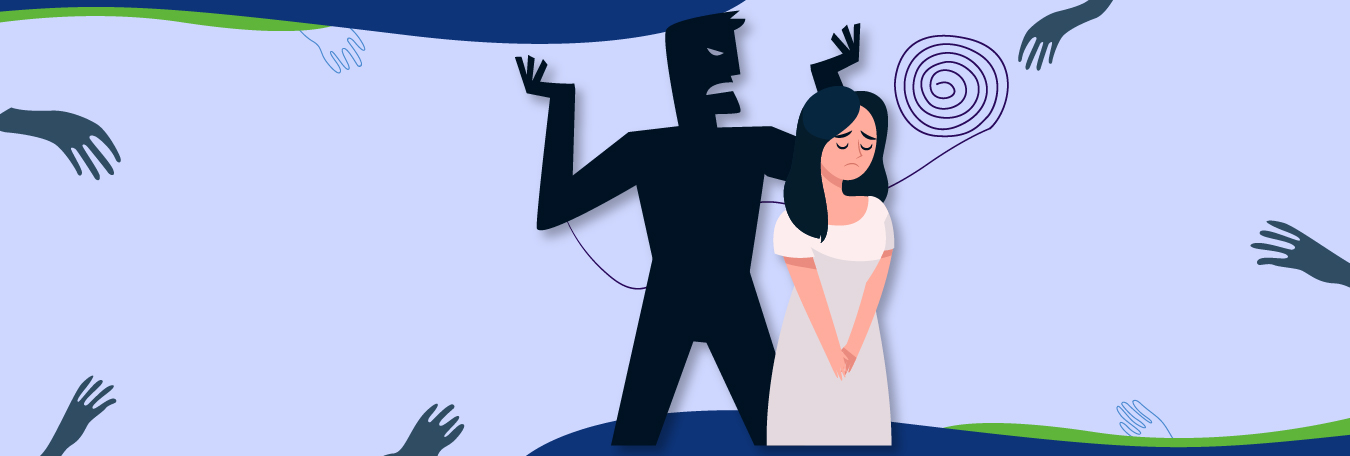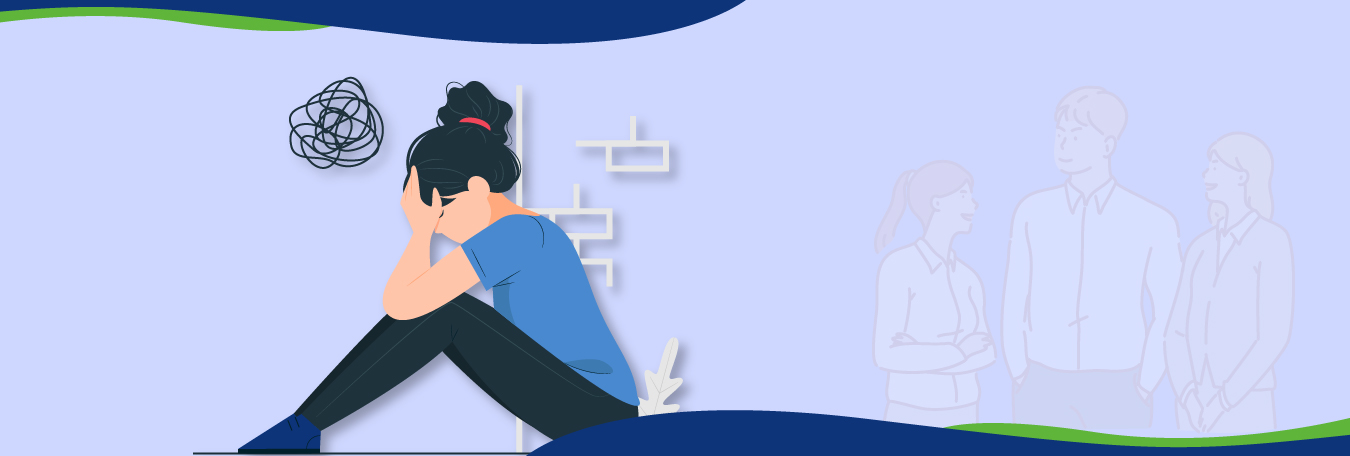Does anxiety and dizziness co-occur for you? Lightheadedness is one of the common symptoms of anxiety. But sometimes anxiety, especially if it is co-occurring with dizziness, is a symptom of a much worse underlying problem you or your loved one might be suffering from. This is why there is a need to go into detail about this type of symptom, so your mental wellness is not interrupted by a mental condition that went undiagnosed, especially in regard to anxiety and dizziness symptoms. Inland Empire Behavioral Group cares about your mental well-being and wants to ensure the prevention of mental problems like anxiety and lightheadedness. Let’s start.
What is Anxiety?
Before we dive into the topic of how to stop feeling the lightheadedness anxiety symptom, we need to look at anxiety individually. What is anxiety exactly? Anxiety is a natural response of your body to stimuli that strike fear and is a major component of the fight or flight response system that is paramount to our species’ survival. Anxiety is one of our normal emotions that helps us increase alertness and fear so that we can get rid of an impending danger.
This type of response can get out of hand and become irrational, giving birth to various mental conditions like generalized anxiety disorder and post-traumatic stress disorder. Anxiety can become acute when you have been feeling it consistently for around 2 weeks. If it goes on for more than 2 weeks and even months, then it’s probably an anxiety disorder. For that reason, treatment becomes extremely necessary.
Learn More: Can anxiety cause diarrhea? What’s the major link?
What is Lightheadedness?
Like anxiety, lightheadedness deserves the spotlight too. Lightheadedness or dizziness as it is commonly known can be a symptom of anxiety or an underlying problem where you feel like passing out from pent-up energy, especially when you feel lightheadedness from anxiety.
The Link Between Anxiety and Lightheadedness
Studies suggest that dizziness is present due to a range of reasons that can relate to your physical, psychological, or vestibular state.
The Fight Or Flight Response System
Sometimes our stress hormones can overdo their thing. The stress hormone Cortisol is elevated in people with anxiety problems or even who just have alleviated general anxiety. This reuptake of the stress hormone is a big contributor to your feelings of dizziness.
An Anxiety Disorder
Anxiety disorder related to lightheadedness occurs when there are episodes of perceived weakness and vertigo which happen when we have an anxiety attack due to an underlying mental condition. During these episodes, you may feel you have been using a lot of energy and you feel the weakness right from head to toe.
Fear Multiplier
Lightheadedness from anxiety is multiplied when you are already feeling it, and then suddenly it hits you that you are feeling a little woozy. This will in turn make you feel a little more scared that it might be something much more serious due to the physical manifestation of a symptom, Thus, this fear compounds fear.
Inner Ear Disorder
Inner ear disorders also contribute to anxiety and lightheadedness and also lead to their coexistence. These inner ear disorders are also called vestibular disorders. Vestibular disorders have a tendency to create disabilities in the affected individuals, which creates anxiety for them and as a result, can cause extreme cases of dizziness and lightheadedness. Here the situation also becomes vice versa. A vestibular disorder can cause anxiety, which can cause dizziness and the cycle repeats. When it comes to this disorder and the answer to how to stop feeling the lightheadedness and anxiety symptom, this puts it very nicely.
Causes of Anxiety and Dizziness Symptoms
According to recent research, the response of the vestibular system is closely related to our psychological state. Our psychological state can sometimes influence how our vestibular system responds to certain stimuli.
Stress hormones like cortisol and histamines can negatively impact the vestibular system by affecting the homeostatic balance of our brain, which is an important component that helps maintain our body’s balance.
The prevalence of anxiety and dizziness coexisting is further compounded by how vestibular disorders and anxiety disorders correlate positively. It is further complemented by how these co-occurring issues can lead to a handicap in the day-to-day lives of people who are or might be affected by both of these problems.
Learn More: Different levels of Anxiety & stages of anxiety recovery
How to Stop Feeling the Lightheadedness Anxiety Symptom?
The best way to go about this would be to search for a treatment that will help a patient get rehabilitation. Additionally, it will also get rid of the anxiety causing lightheadedness. This is why consultation with a mental health provider becomes compulsory. These mental health professionals can guide and treat you, so it is important to know that the consultation will help you rule out some underlying mental conditions. Let’s have a look at some of the treatment procedures:

Psychotherapies:
To treat dizziness, you should focus on things like “talk therapy” or what they call it properly, psychotherapies to treat anxiety. Dizziness is foremost a symptom of anxiety. Your answer to the question, “Is dizziness a symptom of anxiety,” then the answer is yes. For that below are some of the best ways to do psychotherapies that can also treat co-occurring vestibular problems and anxiety are below:
Cognitive Behavioral Therapy (CBT):
CBT is a type of talk therapy that tries to help patients come to terms with the negative thoughts that might be interfering with their feelings and behavior by finding resolutions through imposing positive outcomes. This is extremely suitable for decreasing signs of anxiety and lightheadedness and a good way to end the nagging question, “How to Stop Feeling the Lightheadedness Anxiety Symptoms.”
Exposure Therapy:
Another suitable therapy that can help you with decreasing lightheadedness caused by anxiety. Having anxiety is not a good situation to be in but patients going through this type of therapy are repeatedly exposed to stimuli where the situations trigger anxiety until that anxiety diminishes by itself.
Interpersonal Therapy:
A lot of our anxieties relate to our loved ones. This type of therapy targets exactly that by doing conflict resolution for problems stemming from relationships.
Psychodynamic Therapy:
Mental health experts can target past experiences which may be the fault lines that are inducing anxiety. Perhaps, by going through this type of therapy you can find your answer to the question, “Can anxiety make you lightheaded.”
Medication:
On top of therapies, medication treatment that is commonly used for treating mental conditions like depression, panic disorder, and OCD can be used for treating anxiety disorder-related lightheadedness. The same medication is called Selective Serotonin Reuptake Inhibitors (SSRIs), which also go by the name antidepressants while anti-anxiety pills can also be used to treat anxiety-related lightheadedness.
Lifestyles Changes:
To complement treatments like psychotherapies or medication, certain changes in your everyday life can make a big difference and therefore can help treat lightheadedness caused by anxiety and anxiety itself. These include:
- Exercising
- Optimal Sleep Schedule
- Journaling
- Refraining From Substance Abuse
- Healthy Diet
- Self-Education
- Meditation & Yoga
Concluding Words:
Now you know a lot about the topic., “How to Stop Feeling the Lightheadedness Anxiety Symptom”, so much so that now you can make a choice of selecting the most suitable form of treatment for anxiety and dizziness symptoms. Inland Empire Behavioral Group’s expert mental health professional can support you in his regard and very effortlessly so!




